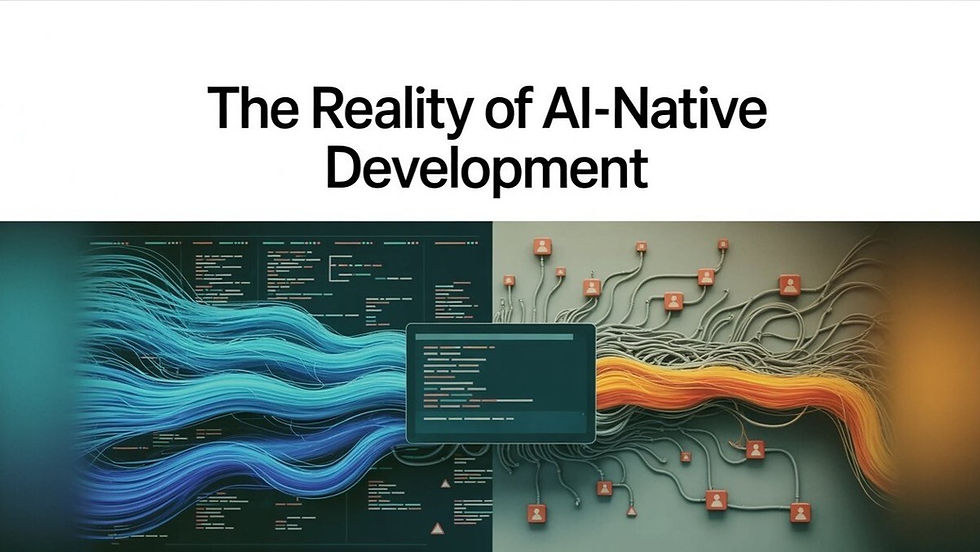Embracing the New Normal: Digital Transformation Trends in Retail
- BlastAsia

- Aug 17, 2021
- 3 min read

Digital transformation accelerated at unprecedented rates within the retail industry to evolve along with the changing times and to deliver to the needs of consumers despite the challenges brought by the COVID-19 pandemic.

Although already an option for consumers for procuring goods, we saw a great boost in e-commerce since the start of the global lockdown. Creating a new norm with online ordering and curbside delivery/pick up, e-commerce has made shopping from anywhere, even for items that consumers prefer to purchase on-site, possible. With this, retailers, one by one, have strategized to transition from brick-and-mortar to online due to the diminishing foot traffic at malls and markets. Consequently, many local stores had to cease operations while new retailers have also opened with no physical storefronts but with robust online point-of-sale systems that promote touchless operations - from ordering to delivery.
The pandemic has indeed changed the face of the retail industry in ways we did not imagine. Despite the challenges of adapting to the new way of doing business, the pandemic brings three major opportunities for retailers to embrace innovation and digital transformation.
Centralized online platforms for ordering and fulfillment

With consumers now doing their shopping from their smartphones and computers, it is ideal to have a centralized platform for picking goods, placing orders, and fulfilling orders to improve inventory visibility and synchronize inventory to endure on-shelf availability to improve picking time and reduce the need for substitutions and risk of customer disappointment.
This must already be able to track data such as promotions and membership subscriptions, to more accurately forecast demand and avoid out-of-stocks. In addition, capabilities such as QR code scanning prove to be useful in providing transparency to both consumers and retailers about processes, ingredients, and supply chains.
Robotic process automation (RPA) for retail processes

With the volume of orders coming from consumers, RPA is one of the technologies the retail industry must leverage to ensure that orders are placed and delivered accurately. This also helps retailers offload non-value-adding tasks from employees while speeding up retail processes and activities which include:
New product launch management
Supply chain and logistics management
Customer support management
Sales analytics
Artificial intelligence (AI) for a more seamless shopping experience

At the onset of the pandemic, many retailers were challenged by the strict protocols when it comes to social distancing. Quickly enough, they've created ways to implement these through AI.
With the use of AI, sensors, and camera platforms, retailers are enabled to monitor social distances between customers and detect when masks are worn. In addition, it also has capabilities to notify retail staff when occupancy limits have been reached in real-time.
Many retailers are still manually monitoring the foot traffic at stores. However, with the cost and risk of tracking this through their staff, automating these processes can help reduce anxiety in retail stores as well as improve efficiency and accuracy in implementing social distancing guidelines in-store.
Digitally Transform with BlastAsia
Continuous digital transformation in the retail industry is inevitable especially with the ever-changing business environment the pandemic brings. Technology is key to adapt, innovate, and seize opportunities to better retail services and meet consumer expectations.
In leveraging software development for ordering and fulfillment with RPA and AI capabilities for retail, it pays to partner with an established tech company with a proven and tested track record in building e-commerce platforms and RPA & AI projects with various clients globally like BlastAsia.

Established in 2001, BlastAsia envisioned to be a leading global software product engineering company for ISVs outsourcing to the Philippines. From day one, it has been committed to delivering quality agile development services with cost efficiency and flexibility. BlastAsia offers a myriad of services including continuous software development, new product development, and product implementation. Its talent pool also consists of competent professionals with expertise in web development, mobile development. artificial intelligence (AI), blockchain/crypto, internet of things (IoT), machine learning, and microservices.
Digitally transform your retail business with BlastAsia. Leave us a message here or email us at bizdev@blastasia.com.





Comments